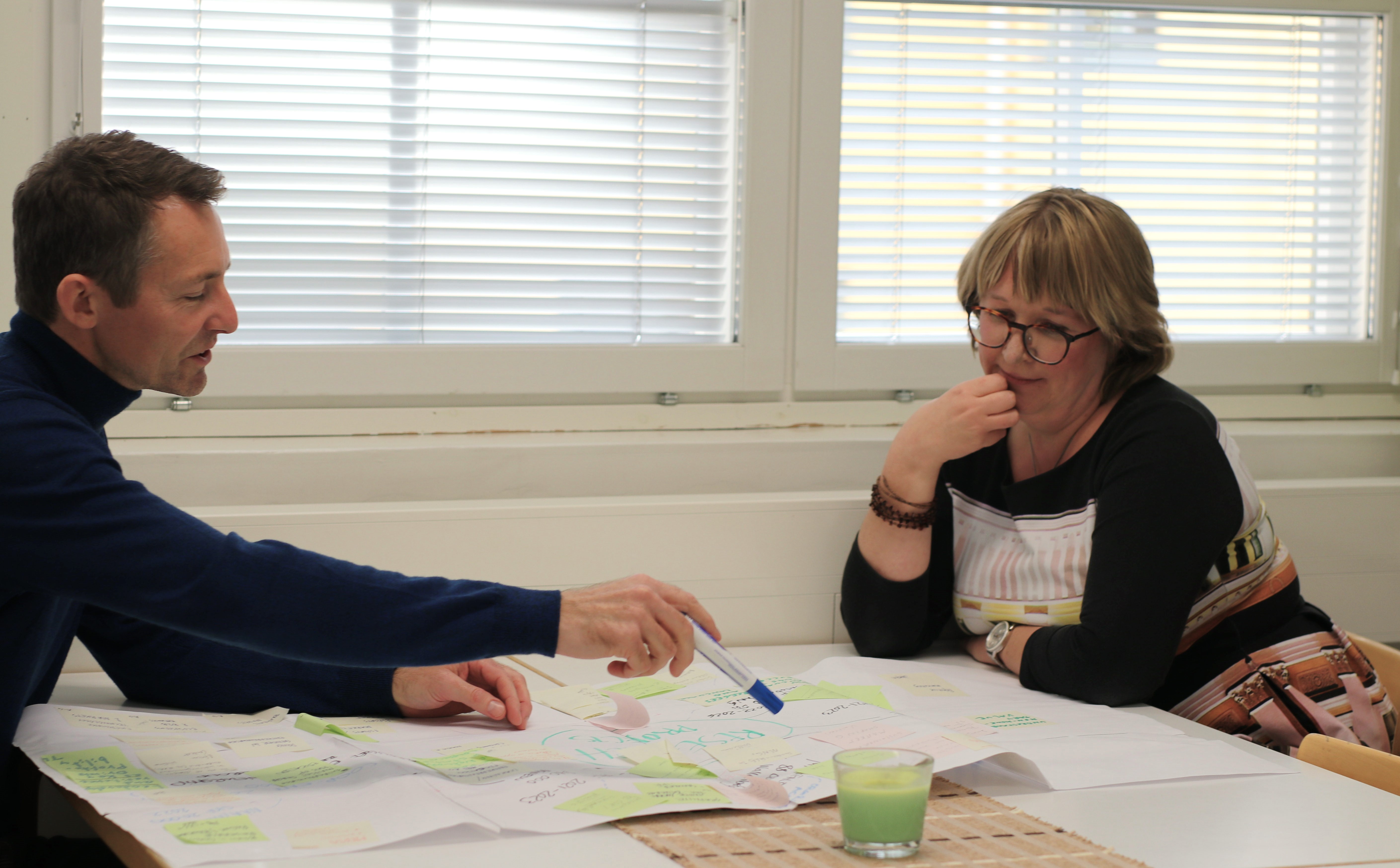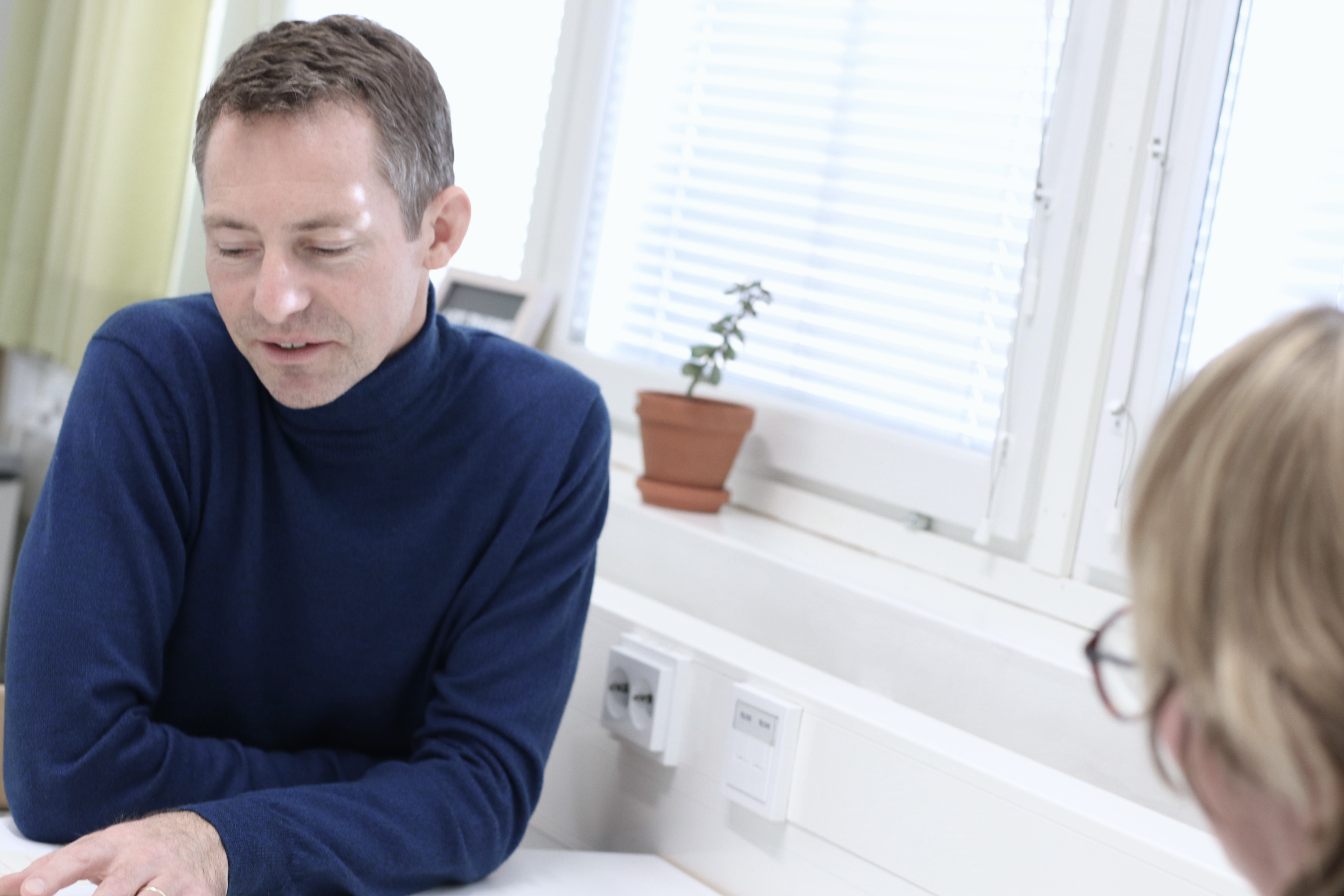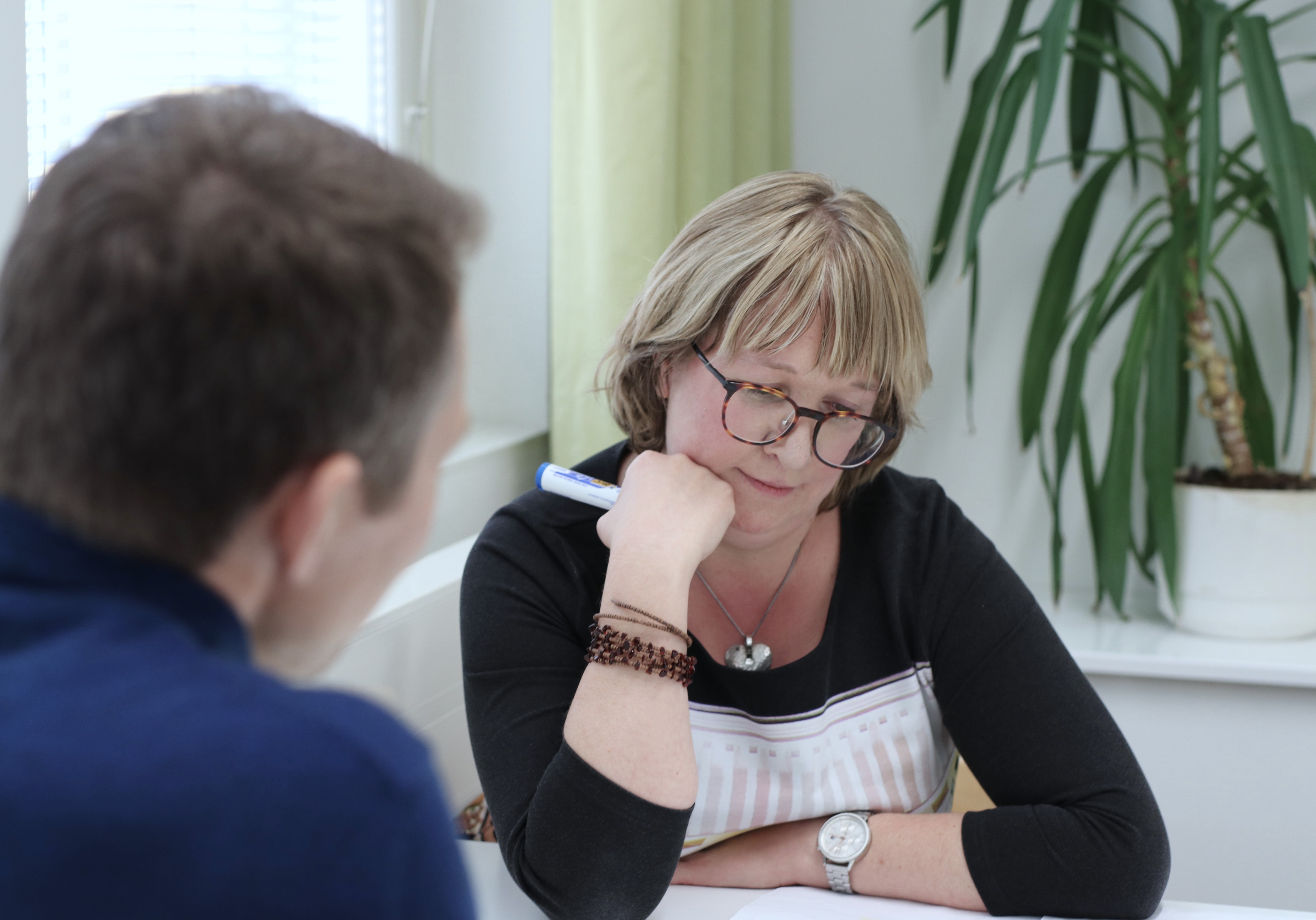23.11.2023
Special education pilot project at the School of Business and Economics looks promising
Since the beginning of the academic year, a pilot project in special education for university purposes has been running at The School of Business and Economics (SBE) at Åbo Akademi University . Already now, the results seem promising.
The aim of the pilot project is to investigate which pedagogical interventions are most effective in supporting students with special needs. The project’s main target group is students, who should complete their bachelor’s degree this year. In primary and secondary schools, different forms of pedagogical support for students with disabilities exist; support systems that disappear rather abruptly at university.
– The insight that we should do something to support students with special needs has become clearer during the last years, says Wilhelm Barner-Rasmussen, Professor of Business Administration, and responsible for the pilot project.
This understanding was turned into action when Barner-Rasmussen discussed with Malin Johansson, nowadays the pilot project’s special needs educator, and realised that much could be done to support these students. The idea was presented to the Rectorate and leading directors at ÅAU at the beginning of the year, and the project quickly received funding support. Both Johansson and Barner-Rasmussen are very pleased with Åbo Akademi University’s quick action in the matter.

Barner-Rasmussen believes that the pandemic directed a spotlight on pedagogical matters. Many people involved in teaching have had to think about which methods work and which do not. Several study-related challenges probably became more pronounced than they were before, as also the teachers were faced with new challenges, he believes.
– Of course, everyone was vulnerable during the pandemic, but students, who had already experienced problems before the pandemic and received extra help at secondary school, were probably particularly vulnerable at university, when the support was disrupted, says Malin Johansson.
Other demands at universities
Johansson explains that it is difficult to create as comprehensive a support model for universities as for upper secondary schools or primary schools. University studies are more individual than studies at the earlier stages, and the support must therefore also be more individual.
– An interesting feature of our pilot project is that we are doing pioneering work in a Finnish university context, so we get to test and learn, she continues.
The teachers in upper secondary and primary schools are also employed to be teachers, while the teaching staff at the university are also researchers and thus have several other responsibilities in addition to teaching.
Traditionally, universities have focused on individuals, freedom, and the ability to work independently, which is also emphasised in the Universities Act. However, in the past, a much smaller proportion of the population applied for and was admitted to universities.
– The number of diagnosed disabilities is constantly increasing. If more and more of the students admitted to universities are not fully independent, so to speak, universities need to do something to support them, says Johansson.

– Given Finland’s demographics, we can’t afford to lose a single young person, and a large part of university funding is dependent on the presumption that those who are admitted actually graduate, Barner-Rasmussen adds.
The pedagogical context
Malin Johansson points out that special education never stands alone but is always part of a larger educational context. Knowing the organisation where one will work as a special needs teacher is a clear advantage.
– Other special needs educators have told me that when they were new to an organisation, they had to work for a long time to familiarise themselves with the environment and the requirements; here at the School of Business and Economics I have the advantage of being familiar with the staff and the organisation, says Johansson.

Johansson is originally a subject teacher in German and English, but has also studied business administration and has worked for a long time with SBE students in her language teaching work. This provides a basic understanding of how the subjects are structured and means that Johansson is familiar with many of the challenges faced by students and can point them in the right direction. She describes herself as something of a sounding board with the task of asking students the right questions so that they can come to their own conclusions.
An important part of Johansson’s task is also to identify students with special needs at an early stage before their problems and challenges have accumulated and become too vast. She also stresses that some of the students she has dealt with have not utilised the support services that are already available.
– Special education is very much about clarity, both for students and staff, says Johansson.
The SBE has traditionally been at the forefront in terms of pedagogy and has been open to new initiatives in teaching. Barner-Rasmussen believes that this may be one reason why funding was granted for the pilot project.
– Perhaps there was confidence that it would be fruitful to carry out this project at the SBE. We are also one of the larger units at ÅAU, so if we manage to achieve something good here, it may have a leverage effect on the rest of the university, he continues.
Johansson believes that the size of the SBE is optimal for the project, and they have been able to take a very practical approach right from the start.
Given the nature of university funding, not many students need to be “saved” for the initiative to pay off financially. The pilot project will run until February, after which it will be evaluated.
– I am now working on a continuation of the project because there is already evidence that this makes sense, says Barner-Rasmussen.
– There may also be a risk that the students that we helped during the year will fall behind again if the project is cancelled without any follow-up, Johansson adds.
Skills for life
In addition to Barner-Rasmussen and Johansson, the SBE’s faculty members and study counsellors, the student association Merkantila Klubben and ÅAU’s study psychologists are also involved in the project to varying degrees
– It is very important that we don’t create some kind of parallel system, but complement each other, says Johansson.
The obvious goal of the project is to ensure that more students succeed in completing their studies on time and to improve the well-being of both students and staff.
– Happier students, who bring something for life with them. It is about life control and the ability to take on demanding tasks, says Barner-Rasmussen.
– Our students are adults, and the solutions we develop are not tied to just getting through a course but they can often be applied to other areas of life, Johansson adds.
Johansson believes that university students are at an optimal age for special education interventions. They are young enough to be malleable but also old enough to take responsibility.
– The best thing about this project is that we are already seeing positive results among the students we work with, says Johansson.
